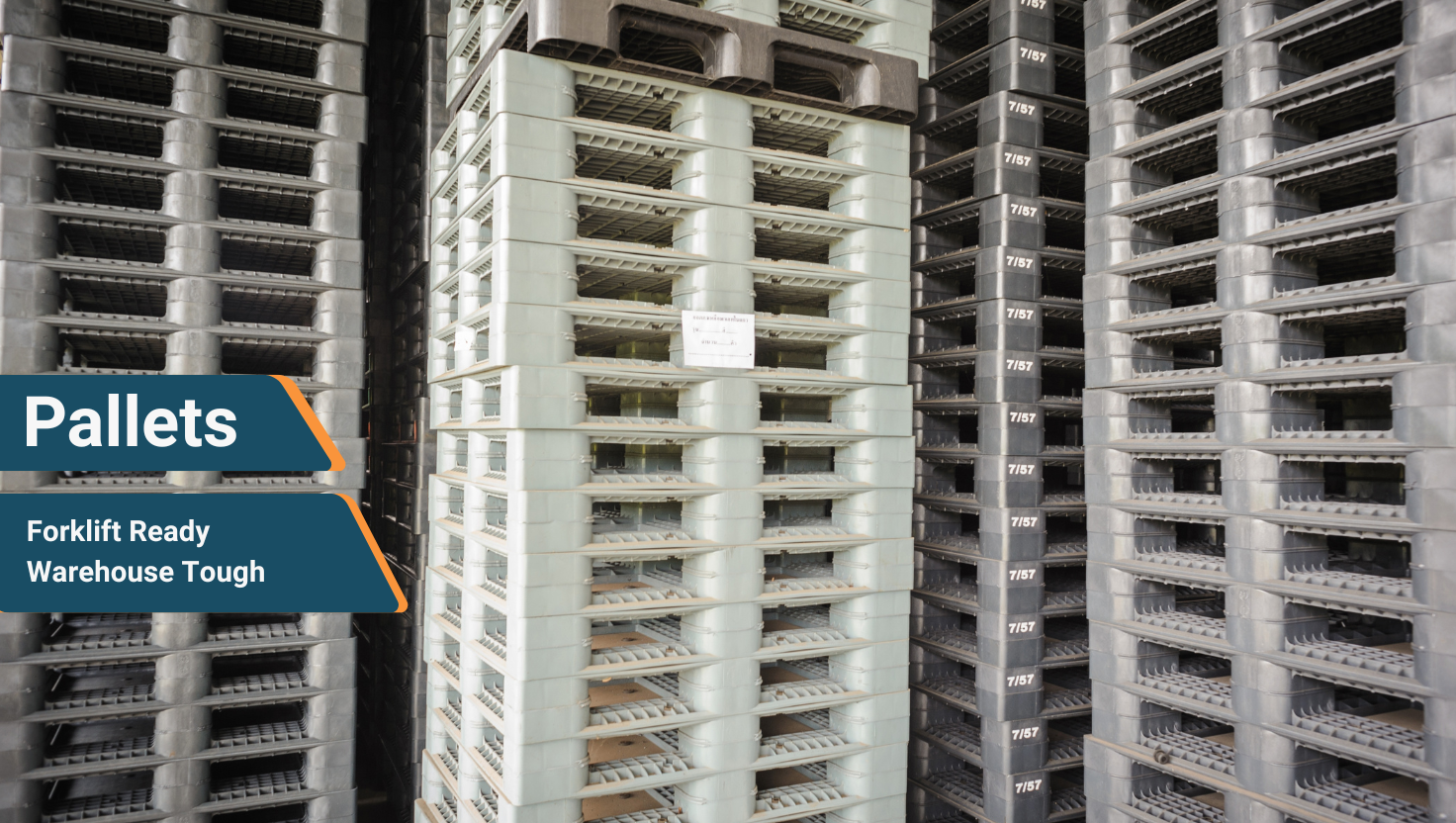SADC Certified Exporter
Nationwide & Cross-Border Delivery
Contact us for an Obligation Free Quote

Industrial pallets in South Africa are used for transporting, storing, and stacking goods across warehouses, factories, and distribution centres. They provide a stable base for forklifts and pallet jacks, making it easier to move heavy loads efficiently while keeping stock organised and safe.
Plastic pallets are valued because they are lightweight, hygienic, and resistant to moisture and chemicals. They are often used in industries such as food processing and pharmaceuticals where cleanliness is critical, and they can be reused many times without splintering or absorbing contaminants.
Aluminium pallets combine strength with corrosion resistance, making them ideal for environments where durability and hygiene are essential. They can handle very high loads, often up to 4 000 kilograms, while remaining lighter than steel. They are also fire resistant, non-porous, and easy to clean, which makes them a long-term investment.
Steel pallets are the best option when extreme strength and durability are required. They perform well in heavy-duty industrial environments, support high static and dynamic loads, and are suitable for bulk storage or transport where wooden or plastic alternatives might fail.
The most common pallet sizes in South Africa are 1200 × 1000 mm and 1200 × 900 mm, although variations such as 1200 × 600 mm and 1200 × 500 mm are also used. The right size depends on the type of goods, the racking system, and the handling equipment in place.
Plastic pallets are more durable, cleaner, and easier to sanitise than wooden pallets. Unlike wood, they do not absorb moisture, they resist pests, and they do not splinter. While wooden pallets may be cheaper upfront, plastic pallets provide better long-term value due to their lifespan and lower risk of contamination.
Yes, aluminium pallets are highly suitable for export because they are ISPM-15 compliant, meaning they do not require fumigation or treatment like wooden pallets. Their durability and resistance to corrosion make them a reliable choice for cross-border shipments throughout the SADC region.
Steel pallets are widely used in manufacturing, mining, automotive, and heavy engineering industries where loads are extremely heavy and conditions can be harsh. They provide a long-lasting solution that can handle repeated use in demanding environments.
An aluminium pallet can carry very high static loads, often up to 4 000 kilograms, depending on the model. This makes them one of the strongest options available for businesses that need both strength and lightweight handling.
Yes, plastic pallets are designed to handle heavy loads, although their capacity is usually lower than aluminium or steel alternatives. They are ideal for medium to heavy duty applications, especially where hygiene and ease of handling are important considerations.
Steel pallets can resist wear and tear but are generally more prone to corrosion than aluminium. For dry environments and heavy industry, they perform exceptionally well, but they may need protective coatings or indoor use in areas where moisture is a concern.
Using the correct pallet size ensures that goods fit securely in racking systems without wasted space or instability. Standard sizes such as 1200 × 1000 mm or 1200 × 900 mm align with most warehouse designs, helping to maximise storage density and improve safety.
Aluminium pallets generally cost more upfront than plastic or wooden pallets, but they last significantly longer and are resistant to damage. Their long lifespan, combined with hygiene and compliance benefits, often makes them more cost-effective in the long run.
Yes, industrial pallets in South Africa can be exported throughout the SADC region. Dreymar Industrial is a SADC-certified exporter, ensuring reliable delivery of plastic, aluminium, and steel pallets across borders with full compliance to regional trade standards.
The right choice depends on your application. Plastic pallets are best for hygiene-sensitive industries and lighter handling. Aluminium pallets combine strength with corrosion resistance and are ideal for heavy loads that also require compliance and cleanliness. Steel pallets provide maximum strength for extreme heavy-duty environments. Evaluating load, environment, and budget will guide the decision.